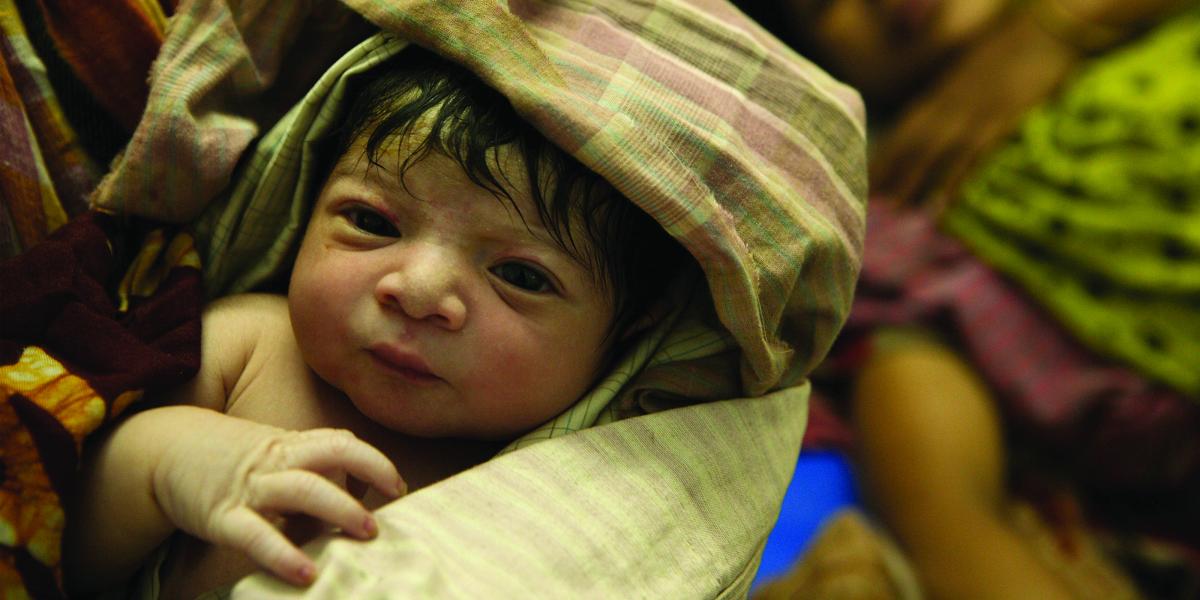Cut the Cord… Cleanly
For many cultures, a newborn’s umbilical cord comes attached to something more than the placenta—it has deep and spiritual meanings. And with this belief follows a host of customs meant to honor the cord and ensure its sanctity, such as the application of special oils or spices.
Often forgotten is that the site of the recently cut cord is an open wound, making it an easy portal for infection. That reality contributes to astoundingly high infant mortality rates in many developing countries. Abdullah Baqui, MBBS, DrPH ’90, MPH ’85, a professor of International Health, has been studying cord care practices in Bangladesh in hopes of reducing newborn child deaths worldwide. He has found that incorporating a common antiseptic called chlorhexidine into postnatal cord care could decrease mortality by about 20 percent, findings that confirm other studies, including one conducted by Johns Hopkins researchers in Nepal.
“If you look at data from countries with a high newborn mortality setting, about half come from infection,” Baqui says. “It’s a very important cause of death, and many of these infections come from cord infection, when the methods of cutting and tying don’t include clean instruments.”
Funded by USAID and Save the Children, Baqui’s research is a direct outgrowth of the UN Millennium Development Goals, one of which seeks a two-thirds reduction to the 1990 child mortality rate by 2015. Most countries are not on track to meet that goal, Baqui says, though under-5 mortality did come down to about 8 million from 12 million in the last 20 years. That decrease, however, is mostly from a reduction in older children’s deaths.
Unfortunately, Baqui says, many countries take at face value WHO recommendations to just keep the cord clean and dry, even though they include a caveat that antiseptics should be considered for babies born in unclean conditions. Now, Baqui and his colleagues at Johns Hopkins, USAID and Save the Children are working with WHO to reevaluate the recommendations—including how they might be revised to better include developing countries where cord care is often not a priority.
“This is a globally important initiative,” says Steve Wall, a pediatrician and senior advisor at Save the Children in Washington D.C. “Newborn deaths from preventable causes such as core hygiene have been a long-standing global tragedy that we know can be prevented. Dr. Baqui and the group at Hopkins have really opened the eyes of the world to a solution that appears cost-effective and simple.”
